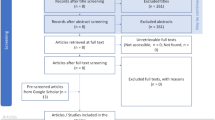Abstract
Animal welfare has been conceptualized in such a way that the use of animals in science and for food seems justified. I argue that those who have done this have appropriated the concept of animal welfare, claiming to give a scientific account that is more objective than the “sentimental” account given by animal liberationists. This strategy seems to play a major role in supporting merely limited reform in the use of animals and seems to support the assumption that there are conditions under which animals may be raised and slaughtered for food that are ethically acceptable. Reformists do not need to make this assumption, but they tend to conceptualize animal welfare is such a way that death does not count as harmful to the interests of animals, nor prolonged life a benefit. In addition to this prudential value assumption, some members of this community have developed strategies for defending suitably reformed farming practices as ethical even granting that death and some other forms of constraints are harms. One such strategy is the fiction of a domestic contract. However, if one accepts the conceptualization of human welfare give by L. W. Sumner, and applies it to animals in the way that I think is justified, an accurate conceptualization of animal welfare has different implications for which uses of animals should be regarded as ethically acceptable. In this paper I give an historical and philosophical account of animal welfare conceptulization and use this account to argue that animal breeders, as custodians of the animals they breed, have the ethical responsibility to help their animal wards achieve as much autonomy as possible in choosing the form of life made available to them and to provide that life. Attempts to avoid these implications by alluding to a contract model of the relationship between custodians and their wards fail to relieve custodians of their ethical responsibilities of care.
Similar content being viewed by others
References
Appleby MC (1999) What should we do about animal welfare?. Blackwell Science, Oxford
Appleby MC, Sandøe P (2002) Philosophical debate on the nature of well-being: implications for animal welfare. Anim Welf 11:283–294
Appleby MC, Mench JA, Hughes BO (eds) (2004) Poultry behaviour and welfare. CABI, Wallingford, UK
DeGrazia D (1996) Taking animals seriously: Mental life and moral status. Cambridge University Press, Cambridge, UK
Duncan IJH (1981) Animal rights—animal welfare: a scientific assessment. Poult Sci 60:489–499
Duncan IJH (2004) A concept of welfare based on feelings. In: Benson GJ, Rollin BE (eds) The well-being of farm animals. Challenges and solutions. Blackwell, Oxford, pp 85–101
Duncan IJH, Fraser D (1997) Understanding animal welfare. Chap. 2. In: Appleby MC, Hughes BO (eds) Animal welfare. CABI, Wallingford, UK, pp 19–31
Fraser D (1993). Assessing animal well-being: common sense, uncommon science. In: Food animal well-being 1993—conference proceedings and deliberations, April 13–15 1993, Purdue University, Office of Agricultural Programs, Indianapolis, IN. pp 37–74, 59–58
Fraser D, Matthews LR (1997) Preference and motivational testing. In: Appleby MC, Hughes BO (eds) Animal welfare. CABI, Wallingford, UK, pp 159–171
Fraser D, Weary DM (2004) Quality of life for farm animals: Linking science, ethics, and animal welfare. In: Benson GJ, Rollin BE (eds) The well-being of farm animals. Challenges and solutions. Blackwell, Oxford, pp 39–60
Fraser D, Weary DM, Pajor EA, Milligan BN (1997) A scientific conception of animal welfare that reflects ethical concerns. Anim Welf 6:187–205
Harrison R (1964) Animal machines. Vincent Stuart, Ltd, London
Haynes RP (2008) Animal welfare. Competing conceptions and their ethical implications. Springer, Berlin, p 2008
Jaspar JM, Nelkin D (1992) The animal rights crusade: the growth of a moral protest. Free Press, New York
Kagan S (1992) The limits of well-being. In: Paul EF, Miller FD, Paul J (eds) The good life and the human good. Cambridge University Press, Cambridge, UK, pp 169–189
Kheel M (2004) Vegetarianism and ecofeminism: toppling patriarchy with a fork. In: Sapontzis SF (ed) Food for thought. The debate over eating meat. Prometheus Books, Amherst NY, pp 327–343
Mench JA (1998) Thirty years after Brambell: whither animal welfare science? J Appl Anim Welf Sci 1(2):91–102
Russell WMS, Burch RL (1959) The principles of humane experimental technique. UFAW
Ryder Richard (1998) The political animal. The conquest of speciesism. McFarland and Co, London
Sandøe P, Christiansen SB, Appleby MC (2003) Farm animal welfare: the interaction of ethical questions and animal welfare science. Anim Welf 12:469–478
Sapontzis SF (1987) Morals, reason, and animals. Temple University Press, Philadelphia, PA
Sumner LW (1996) Welfare, happiness, and ethics. Clarendon Press, Oxford, UK
Author information
Authors and Affiliations
Corresponding author
Rights and permissions
About this article
Cite this article
Haynes, R.P. Competing Conceptions of Animal Welfare and Their Ethical Implications for the Treatment of Non-Human Animals. Acta Biotheor 59, 105–120 (2011). https://doi.org/10.1007/s10441-011-9124-2
Received:
Accepted:
Published:
Issue Date:
DOI: https://doi.org/10.1007/s10441-011-9124-2



